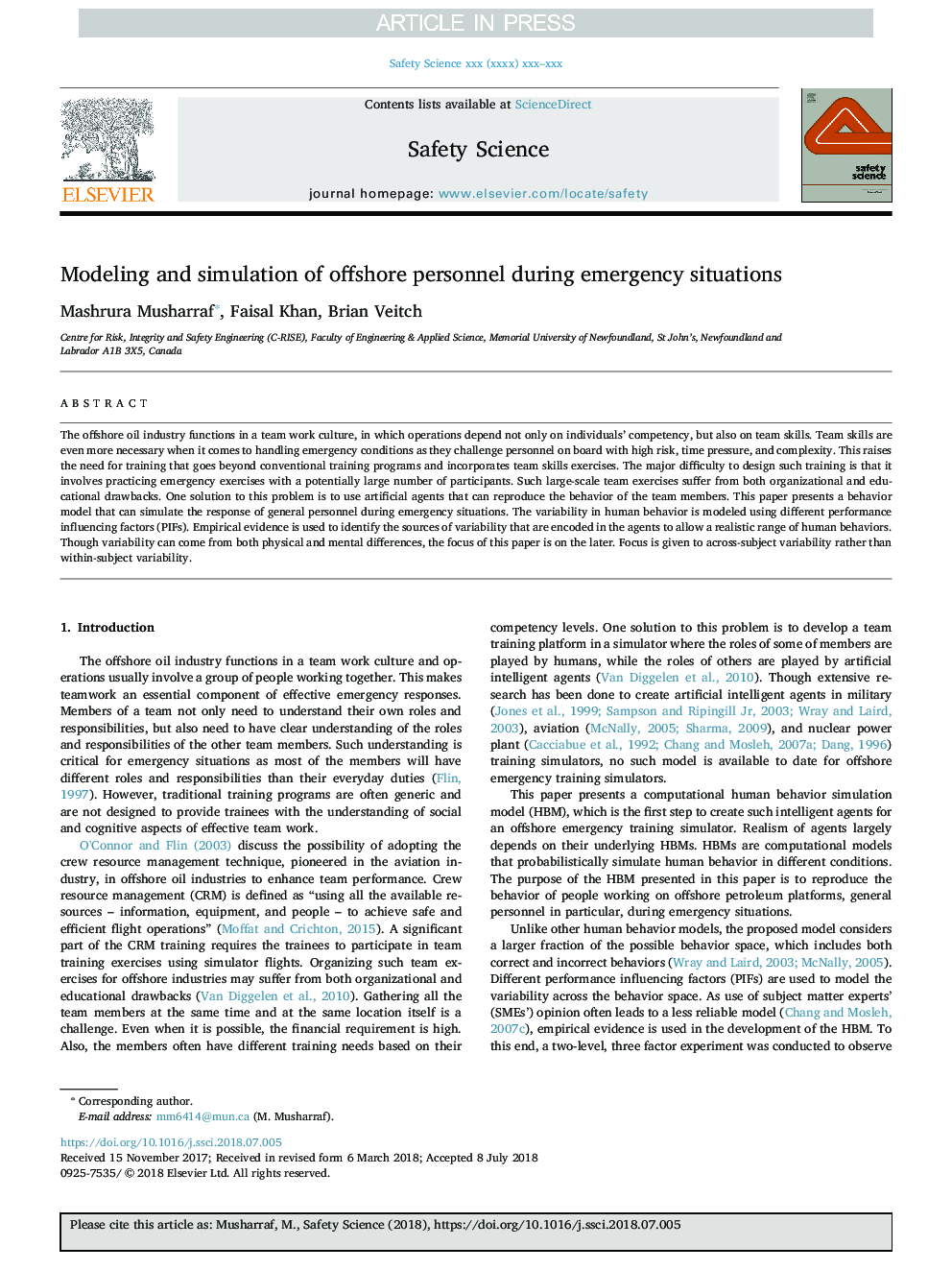| Article ID | Journal | Published Year | Pages | File Type |
|---|---|---|---|---|
| 11263394 | Safety Science | 2019 | 10 Pages |
Abstract
The offshore oil industry functions in a team work culture, in which operations depend not only on individuals' competency, but also on team skills. Team skills are even more necessary when it comes to handling emergency conditions as they challenge personnel on board with high risk, time pressure, and complexity. This raises the need for training that goes beyond conventional training programs and incorporates team skills exercises. The major difficulty to design such training is that it involves practicing emergency exercises with a potentially large number of participants. Such large-scale team exercises suffer from both organizational and educational drawbacks. One solution to this problem is to use artificial agents that can reproduce the behavior of the team members. This paper presents a behavior model that can simulate the response of general personnel during emergency situations. The variability in human behavior is modeled using different performance influencing factors (PIFs). Empirical evidence is used to identify the sources of variability that are encoded in the agents to allow a realistic range of human behaviors. Though variability can come from both physical and mental differences, the focus of this paper is on the later. Focus is given to across-subject variability rather than within-subject variability.
Related Topics
Physical Sciences and Engineering
Chemical Engineering
Chemical Health and Safety
Authors
Mashrura Musharraf, Faisal Khan, Brian Veitch,
